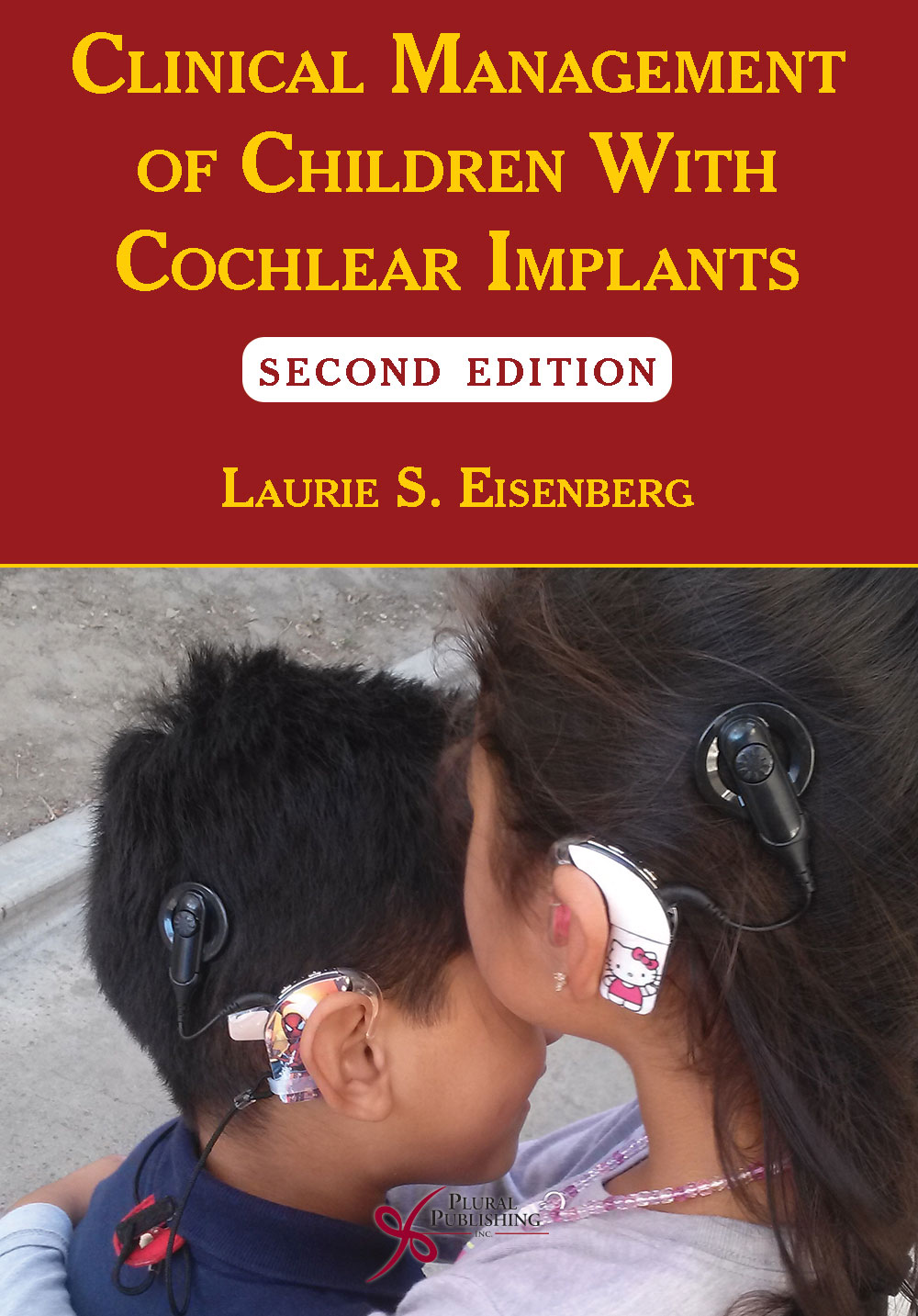
Clinical Management of Children With Cochlear Implants
Second Edition
Laurie S. Eisenberg
Details: 890 pages, B&W, Softcover, 7" x 10"
ISBN13: 978-1-59756-723-7
© 2017 | Available
For Instructors
Purchase
A comprehensive volume written by leading researchers, clinicians, and educators in the field, Clinical Management of Children With Cochlear Implants, Second Editionoffers a guide for practitioners, instructors, and students. The book builds on over thirty-five years of collective experience in pediatric cochlear implantation and addresses contemporary practices. The authors share their expertise in such disciplines as otolaryngology, pediatrics, audiology, speech-language pathology, habilitation, education, electrophysiology, psychology, and clinical research. Although many of the chapters from the first edition remain relevant today, the field continues to evolve with advancements in technology, expanding indications, and patient demographics. The second edition reflects these changes with new topics and expanded updates, presenting up-to-date research findings with implications for clinical management of the pediatric implant population.
New to the Second Edition
- New chapters on neurocognitive assessment, dual language learning, early literacy, family-centered habilitation, and development of evidence-based programs
- Expanded chapters on device programming, education, and auditory brainstem implants
- Updates in research and clinical practices in assessment and management
Douglas L. Beck, AuD, speaks with Dr. Eisenberg about this new edition as well as hot topics in pediatric cochlear implants.
Reviews
"Named to Doody's Core Titles in the Health Sciences - Speech, Language & Hearing 2020 list."
—Doody's (May 2020)
"This very substantial book has 23 chapters in four sections and covers all you might possibly need to know on the subject of cochlear implants in children. . . . The book is clear evidence of Laurie Eisenberg's eminence in the field, of her powers of persuasion and also of the obvious popularity and high level of usefulness of the first edition of her book. Each chapter combines research findings with their practical application. It represents a very substantial 'Bible' and is both an essential work of reference and a practical guide for all of those who work in the field of implants for the deaf and hard of hearing: each of us should certainly have a copy on our bookshelf!"
—John Graham, in Cochlear Implants International, Vol 17, No. 5 (September 2016)
"This substantial volume is nearly 900 pages long but definitely worth the shelf space. That said, it hasn't actually made it to a shelf since its arrival at our department as everyone who spotted it has wanted to borrow it! The multidisciplinary areas of paediatric clinical cochlear implant (CI) management are comprehensively and expertly covered in its 23 chapters. Beyond the technical, research and reference updates expected of a second edition, it also includes new areas such as neurocognitive assessment which, in line with the style of the book as a whole, are accessible to the non-specialists amongst us. The broadening of both criteria and experience in CI is reflected in the detailed rehabilitation and education section and insightful chapters on special populations, including low socioeconomic groups, additional disabilities, auditory neuropathy spectrum disorder and use of brainstem implants. Many chapters also make useful reading for professionals supporting moderate to severly hearing impaired children outside of the cochlear implant clinic and referring clinicians."
—Tracey Twomey, Consultant Clinical Scientist, Head of Service, Nottingham Auditory Implant Programme, Nottingham University Hospitals NHS Trust, UK, in ENT & Audiology News (May/June 2017)
Preface to the Second Edition
Contributors
Section I. Clinical Management
Chapter 1. Cochlear Implants in Children: Historical Perspectives and Personal Reflections
Laurie S. Eisenberg
Chapter 2. Clinical Management of Cochlear Implants in Children: An Overview
Margaret E. Winter and Kristina Celani Rousso
Chapter 3. Acoustic Amplification for Infants and Children: Selection, Fitting, and Management
Patricia A. Roush and Richard C. Seewald
Chapter 4. Cochlear Implants and Auditory Brainstem Implants for Children: Surgical Considerations
Ksenia A. Aaron, Elina Kari, Rick A. Friedman, and John K. Niparko
Chapter 5. Programming Cochlear Implants in Children
Jace Wolfe and Erin C. Schafer
Chapter 6. Bilateral Cochlear Implants in Children
Ruth Litovsky
Chapter 7. Electrically Evoked Auditory Potentials: Clinical Applications
Carolyn J. Brown, Rachel Anna Scheperle, Viral D. Tejani, Eun Kyung Jeon, Shruti Balvalli Deshpande, and Paul J. Abbas
Section II. Assessment
Chapter 8. Assessing Spoken Word Recognition in Children With Cochlear Implants
Karen Iler Kirk, René H. Gifford, and Kristin Uhler
Chapter 9. Issues and Challenges in the Development of Evidence-Based Pediatric Intervention Programs
Sigfrid D. Soli and Yun Zheng
Chapter 10. The Assessment Role of the Speech-Language Specialist on the Clinical Cochlear Implant Team
Dianne Hammes Ganguly, Sophie E. Ambrose, and Catherine Cronin Carotta
Chapter 11. Beyond Hearing: Use of Parent Questionnaires for Assessing Auditory Functioning in Hearing-Impaired Infants
Liat Kishon-Rabin and Osnat Segal
Chapter 12. Psychological Factors in Pediatric Cochlear Implantation: Practical Considerations
Carren J. Stika and John F. Knutson
Chapter 13. Neurocognitive Assessment of Children With Cochlear Implants
William G. Kronenberger and David B. Pisoni
Chapter 14. Vestibular Assessment
Sharon L. Cushing and Blake C. Papsin
Chapter 15. Outcomes in Cochlear Implantation: Assessment of Quality of Life Impact and Economic Evaluation of the Cochlear Implant
Yevgeniy R. Semenov, Frank R. Lin, Howard W. Francis, and John K. Niparko
Section III. Rehabilitation and Education
Chapter 16. Listening and Spoken Language at the John Tracy Clinic: Dwelling in Possibilities through Hope, Guidance, and Encouragement
Jane Freutel, Mary D. McGinnis, and Jill A. Muhs
Chapter 17. Literacy and Educational Considerations for Children Who are Deaf and Hard of Hearing
Debra Kay Schrader and Vicki L. Reynolds
Chapter 18. Habilitation Considerations for Families Who are Linguistically Diverse
W. Michael Douglas
Chapter 19. Empowering Families of Children With Cochlear Implants: Implications for Early Intervention and Language Development
Jean L. DesJardin
Section IV. Special Populations
Chapter 20. Working With Children from Lower SES Families: Understanding Health Disparities
Rachel Umans and Dana L. Suskind
Chapter 21. Cochlear Implantation in Children With Additional Disabilities
Karen C. Johnson, Susan Wiley, and Jareen Meinzen-Derr
Chapter 22. Clinical Management of Children With Auditory Neuropathy Spectrum Disorder
Holly F.B. Teagle, Patricia A. Roush, Lisa R. Park, Shuman He, Carlton J. Zdanski, and Craig A. Buchman
Chapter 23. New Frontiers in Auditory Prostheses: Auditory Brainstem Implants in Prelingually Deaf Children
Laurel M. Fisher, Amy S. Martinez, Jamie L. Glater, and Robert V. Shannon
Index
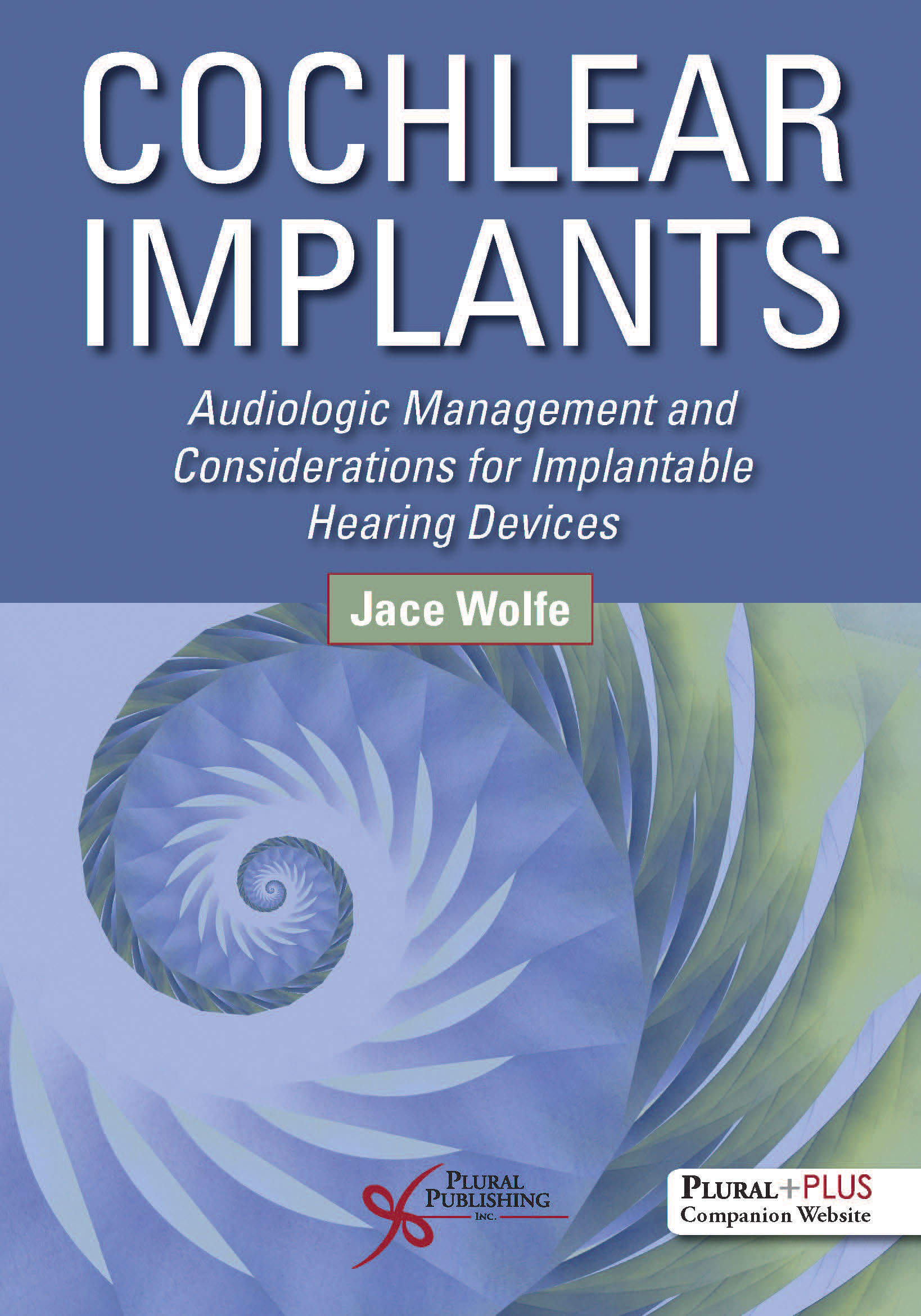
Cochlear Implants: Audiologic Management and Considerations for Implantable Hearing Devices
First Edition
Jace Wolfe
Details: 858 pages, Full Color, Hardcover, 8.5" x 11"
ISBN13: 978-1-59756-892-0
© 2020 | Available
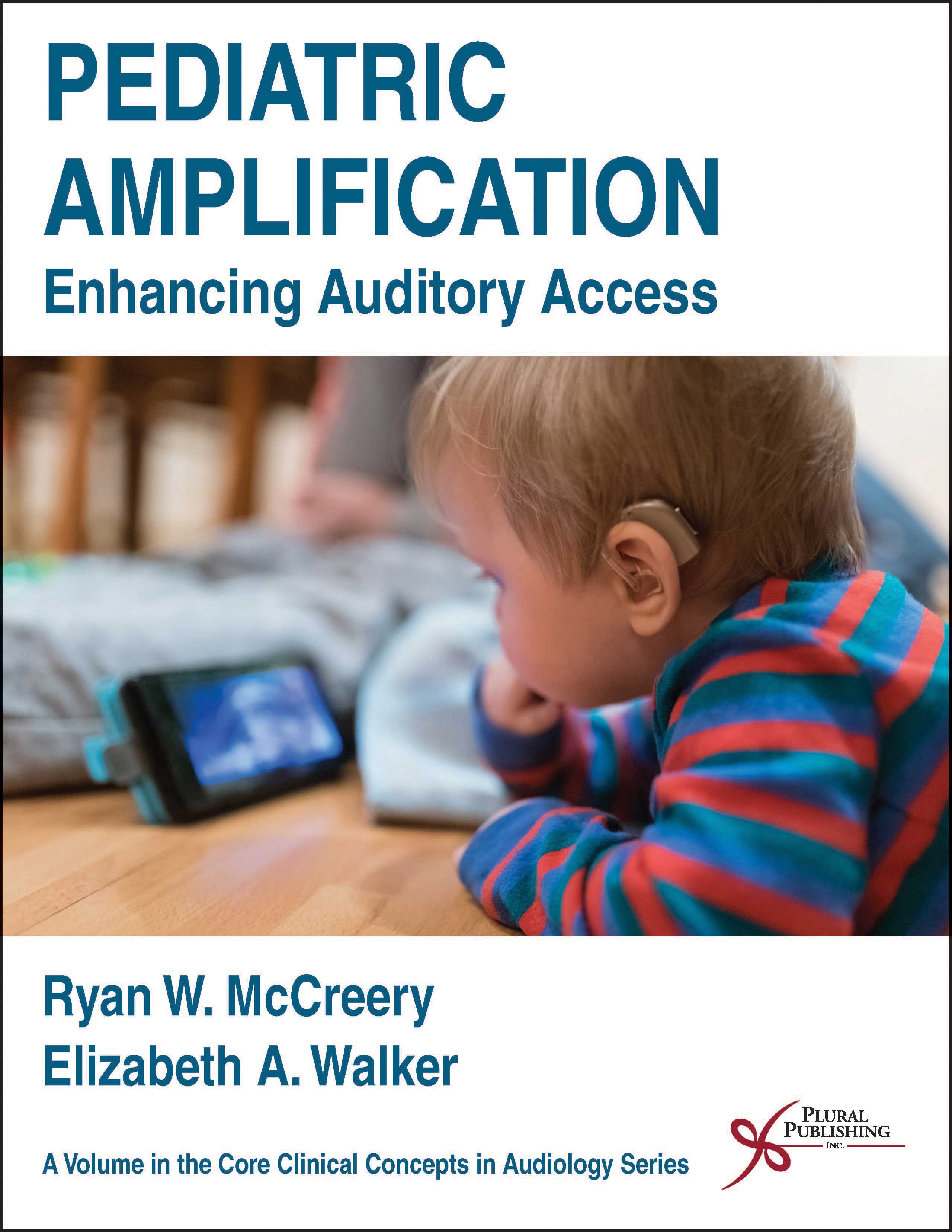
Pediatric Amplification: Enhancing Auditory Access
First Edition
Ryan W. McCreery, Elizabeth A. Walker
Details: 272 pages, B&W, Softcover, 8.5" x 11"
ISBN13: 978-1-59756-992-7
© 2017 | Available
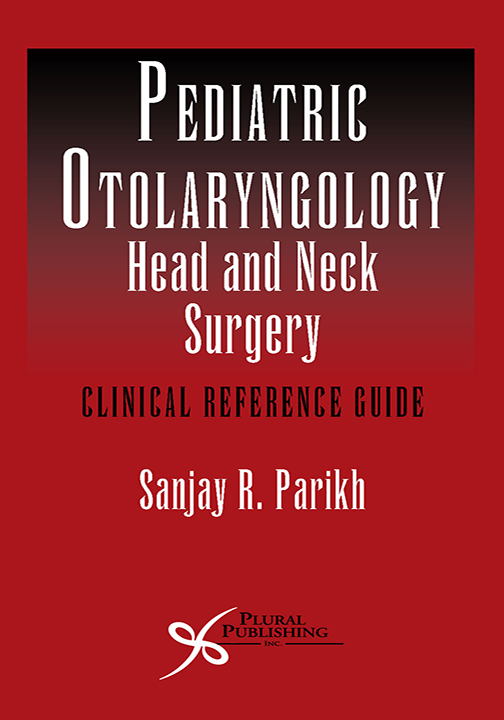
Pediatric Otolaryngology-Head and Neck Surgery: Clinical Reference Guide
First Edition
Sanjay R. Parikh
Details: 752 pages, B&W, Softcover, 4.5" x 8"
ISBN13: 978-1-59756-528-8
© 2014 | Available
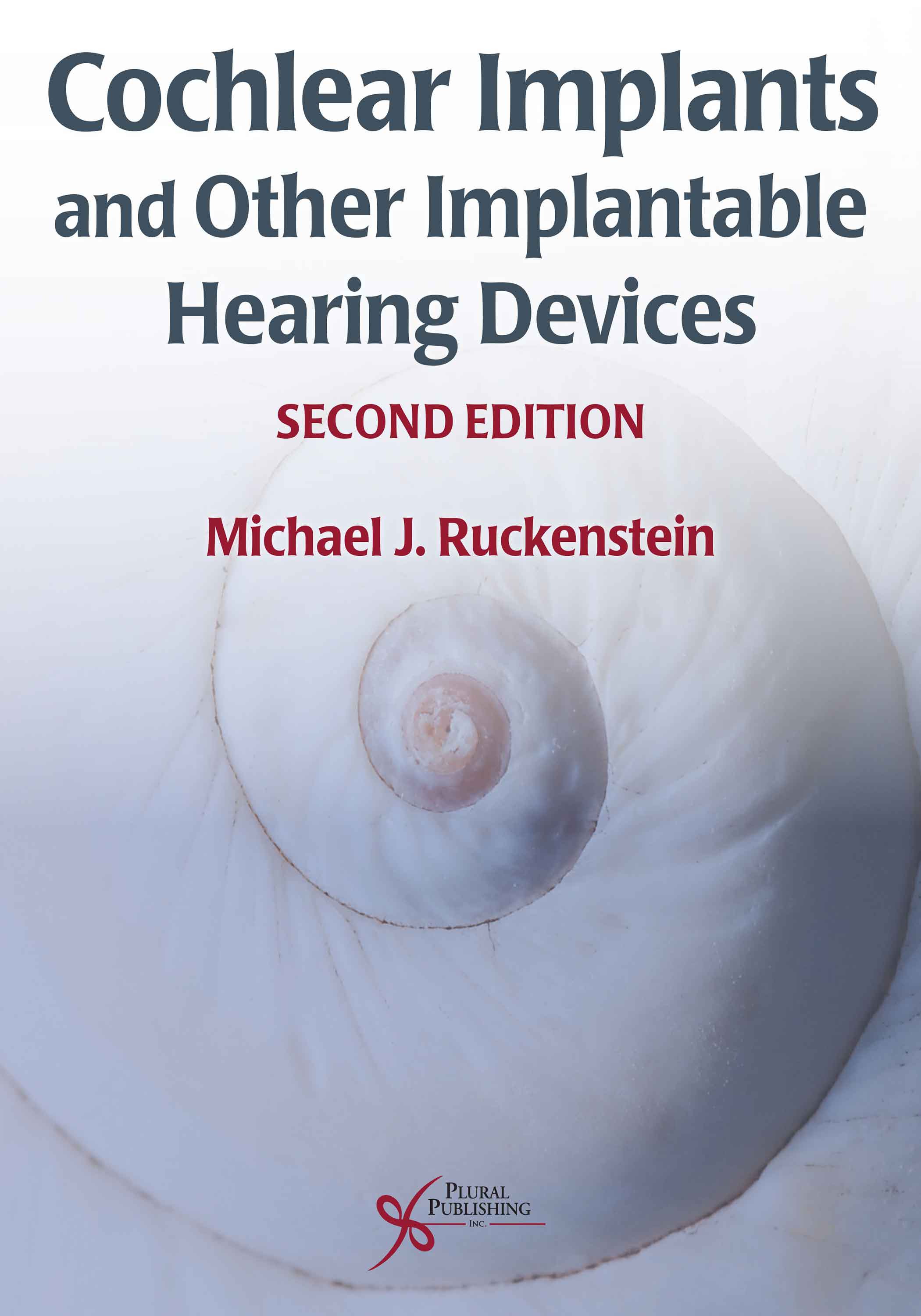
Cochlear Implants and Other Implantable Hearing Devices
Second Edition
Michael J. Ruckenstein
Details: 383 pages, Full Color, Hardcover, 8.5" x 11"
ISBN13: 978-1-63550-126-1
© 2020 | Available
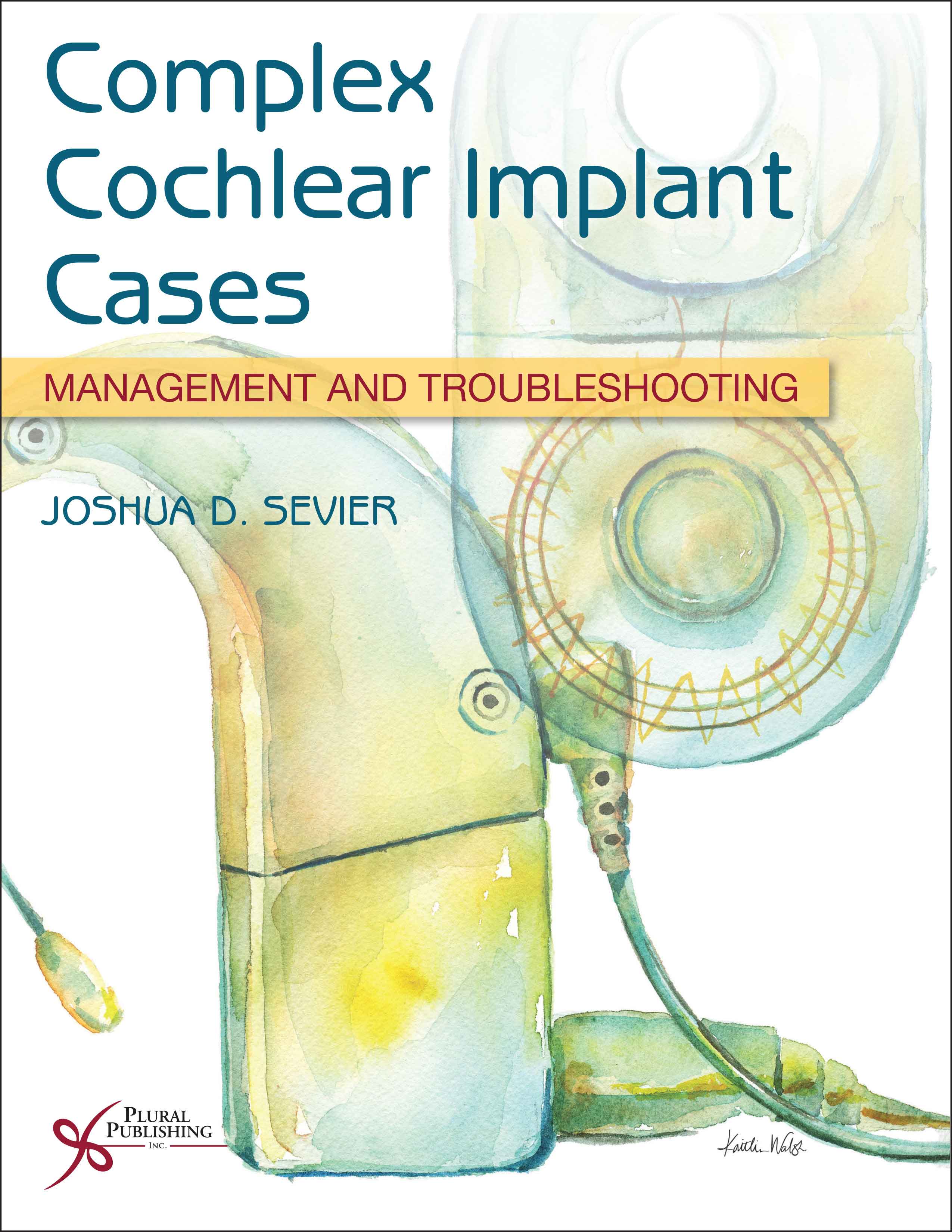
Complex Cochlear Implant Cases: Management and Troubleshooting
First Edition
Joshua D. Sevier
Details: 278 Pages, B&W, Softcover, 7" x 10"
ISBN13: 978-1-63550-383-8
© 2023 | Available
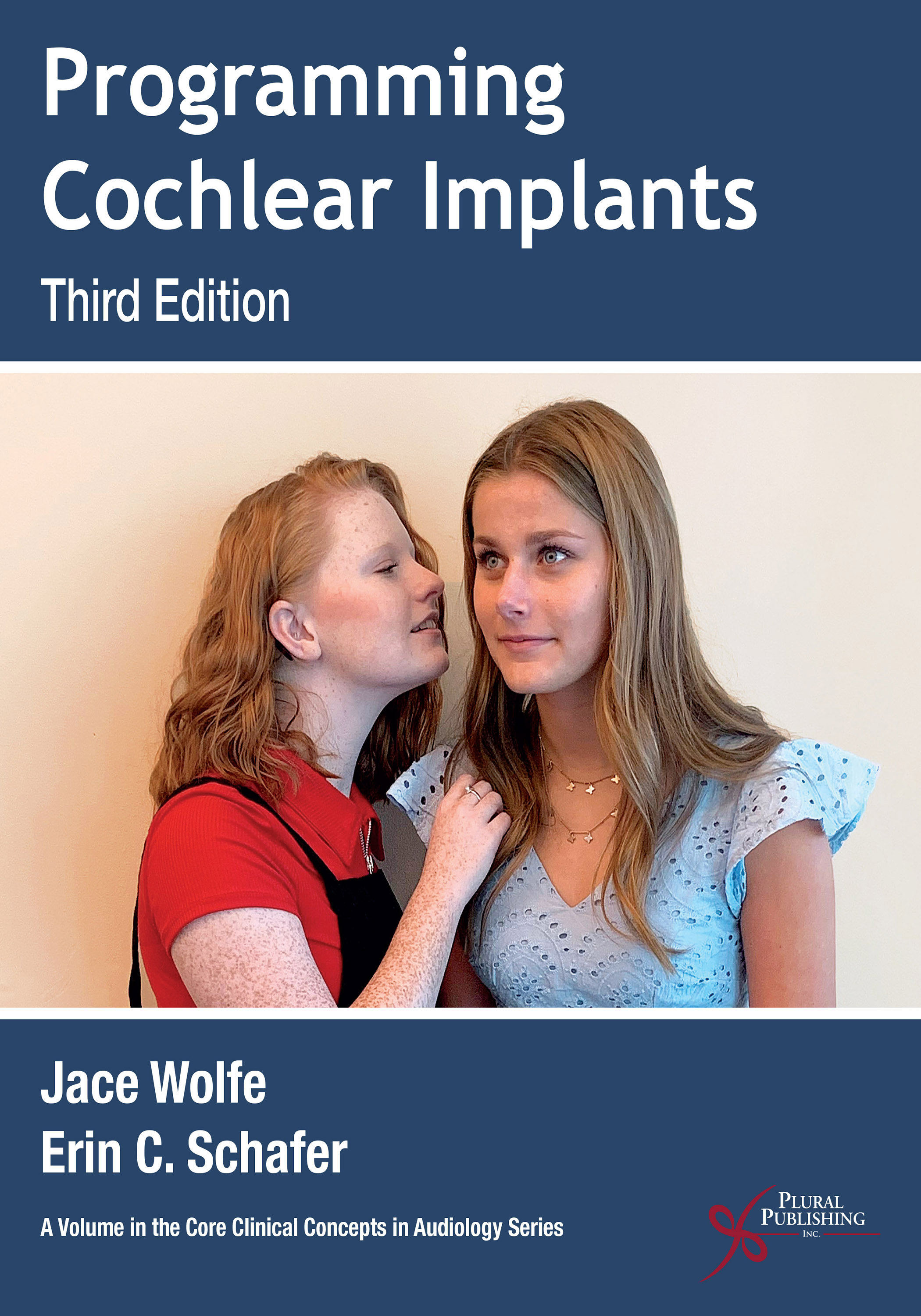
Programming Cochlear Implants
Third Edition
Jace Wolfe, Erin C. Schafer
Details: 630 pages, 2-Color, Softcover, 8.5" x 11"
ISBN13: 978-1-63550-176-6
© 2024 | Available

